Bashar al-Assad has once again been confirmed as a puppet regime leader. He represents the interests of Syrian and foreign forces under the name of 'state and national interests.' Assad is not responsible for the ceasefire in Syria, nor is he capable of governing the regime. Instead of him, others are thinking, holding elections, distributing and selling oil, caring for refugee citizens, including children, elderly and women, and declaring a ceasefire in his land. The PKK/YPG-PYD terrorist groups are controlling a part of the country's territory, while the rest is under the control of other forces. Some media outlets disseminate unreasonable reports about the success of the 'Syrian army' of Bashar al-Assad. Iran and Russia act on his behalf. Sometimes, the PKK serves Assad's purpose.
The meeting between Turkish President Recep Tayyip Erdogan and Russian President Vladimir Putin that took place on March 5 in Moscow to discuss the situation in Syria, especially in Idlib province, has once again confirmed the above mentioned.
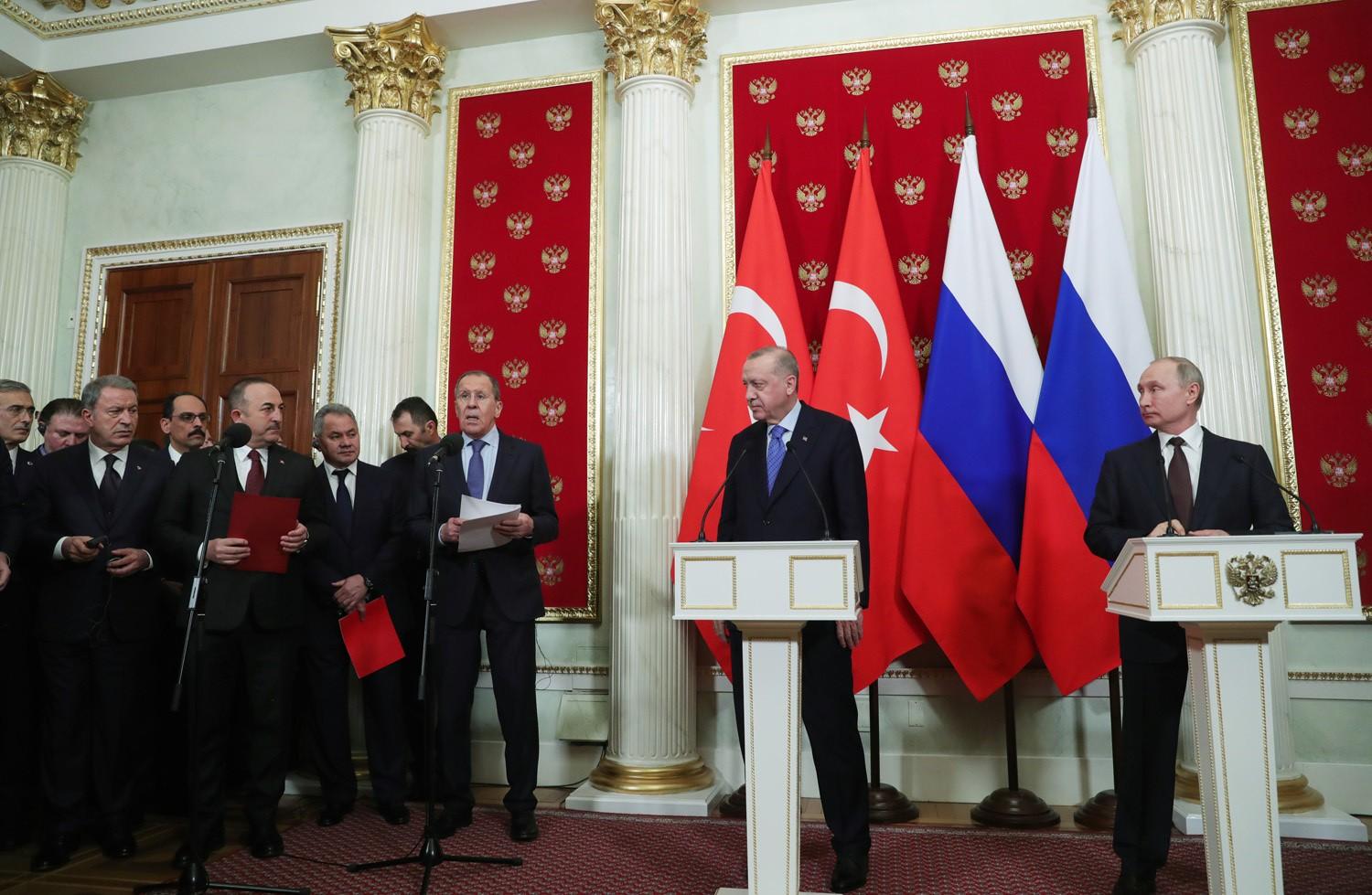
"We need to discuss the situation not to damage Russia-Turkey relations that we cherish," the Russian leader said, underlying the importance of the meeting.
"We were to hold this meeting in Turkey. However, due to your work on constitutional amendments, we decided to accept your invitation to come here. The steps we will take, the right decisions we will take here today will help ease (concerns in) the region and our countries We are experiencing a tense period in the Turkish-Russian relations. It, of course, applies to the defense industry and trade relations," Erdogan said in response.
Meanwhile, the recent three-round talks between Russia and Turkey failed to yield a ceasefire. In this regard, the meeting of the Turkish and Russian leaders was of utmost interest.
The importance of Turkey and Russia for each other is also reflected in economic relations. As it is known, Turkey purchased an S-400 anti-aircraft missile system from Russia. The sides do not hide their intentions to continue cooperating in this regard. The agreement (total project cost is estimated at $20b), providing for the construction of the Akkuyu nuclear power plant is crucial for Russia in the current circumstances. The South Stream natural gas project and the collaboration in tourism, agricultural exports, and imports give us a reason to believe that the two countries are more important to each other than Bashar al-Assad.
It should be noted that the trade turnover between Russia and Turkey amounted to $21.7b, up 2.5% in 2019 compared to 2018. The volume of investment projects in both countries made $10b. For comparison, the trade turnover between Russia and Syria amounted to $401,465,290 in 2018. Syria ranks 130th among Russia's import partners. In this context, Erdogan and Putin, in their statements, highlighted the mutual interests in economic and military cooperation.
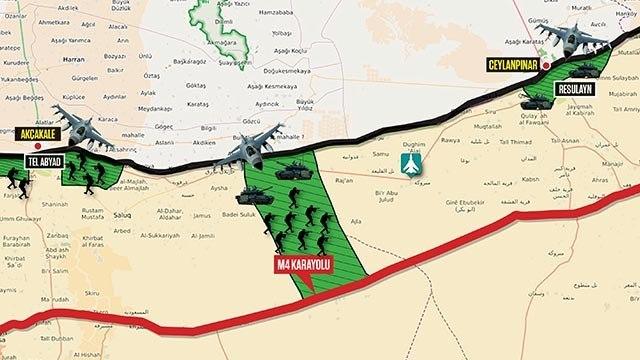
Kremlin is well aware that Bashar al-Assad and present-day Syria are less vital than Turkey in terms of securing its interests.
Nevertheless, it does not forget about its geopolitical interests. Why does Moscow need Bashar al-Assad? Russia mainly uses Bashar al-Assad to stay in Syria. Otherwise, it begs a question: What is Russia doing in Syria, if it doesn't border the latter? In previous years, Moscow had announced the withdrawal of some military forces from Syria.
Russia has formed a permanent grouping of forces at the Tartus naval facility and the Hmeymim airbase in Syria. It also intends to set up a helicopter base in the northeastern Syrian city of Qamishli, which will be the third permanent base. Besides, the Russian Air Forces use the airfields in Shayrat and Tiyas cities. According to TASS, Russia deployed more than 20 attack aircraft (Su-24M, SU-25, Su-30SM), nearly 20 helicopters (Mi-24, Mi-8), Il-20M1 reconnaissance aircraft, drones, S-400 anti-aircraft missile systems in Hmeymim in August 2016. Also, the Wagner forces belong to Russia. Recently, there has been no news about Russia's military contingent in Syria. Turkey does not oppose Russia's establishment of military bases in Syria. Ankara wants Kremlin to stop defending Bashar al-Assad.
The subject matter had been announced before the meeting. Turkey demanded the Syrian regime to stop its attacks on Idlib and withdraw beyond the borders stipulated under the Sochi Agreement. It also stressed the need to implement a ceasefire in Idlib, to ensure the return of displaced civilians, who are enduring the harsh winter, to their homes. Otherwise, Ankara pledged to continue Operation Spring Shield until Assad's forces retreat to Turkey's observation points in Idlib. However, Moscow required the other side to allow the Assad regime to secure control of the critical strategic M4 and M5 highways passing through the strategic town of Saraqeb. Moscow has asked for the disarmament of the Syrian National Army (Free Syrian Army), Islamist opposition, including Ahrar-al-Sham, Ihvan Feylak-al-Sham groups.
Anyway, the three-hour-long summit between the two presidents and the three-point protocol signed, allow us to think that all these proposals have been discussed. On March 5, the parties agreed as follows:
- to cease all military actions along the line of contact in the Idlib de-escalation area starting from 00:01 March 6, 2020;
- a security corridor will be established 6 kilometers (3.7 miles) deep to the north and south of the M4 highway;
- joint Turkish-Russian patrols will begin on March 15 along the M4 road.
The specific parameters of the security corridor operation will be agreed between the defense ministries of Turkey and Russia within seven days.
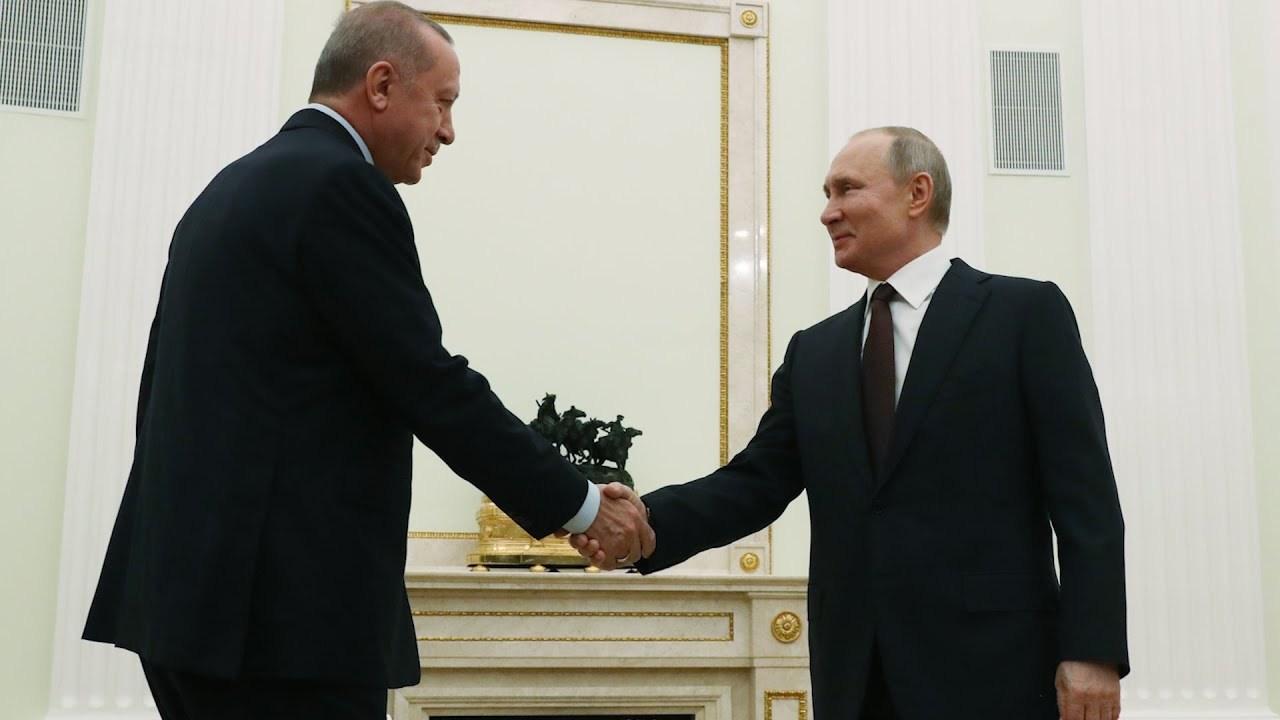
The M4 highway is of considerable significance as it connects Syria's Latakia and Aleppo cities, which are controlled by Russia. The safety of the highway between these cities is of strategic importance to Moscow. So, the two leaders reached an agreement for a ceasefire in Idlib.
UN Secretary-General Antonio Guterres voiced hope the ceasefire agreement between Russia and Turkey would lead to lasting cessation. The US welcomed the deal, hoping it will help reduce the tension. "We support the Turkey-Russia agreement for a ceasefire in Idlib. We hope it will eliminate a hazardous situation and alleviate the terrible humanitarian crisis that was caused by the attacks of Assad's regime, Russia, Iran, and Hezbollah forces," the US State Department said in a statement after the meeting.
The US stated that all sides in the conflict must adhere to this agreement. It emphasized the importance for Bashar Assad and his allies to abide by the treaties they signed.
Meanwhile, during the process, Turkey's allies in NATO, except the US and Greece, supported Ankara's position regarding the developments in Idlib. US Special Envoy for Syria James Jeffrey stated that the Turkish Armed Forces and the Syrian need to prevent a humanitarian catastrophe in Idlib. "Turkey seeks to find a peaceful solution for Syria. As President Trump has said, NATO and the US will provide humanitarian assistance to Turkey in Idlib," he said.
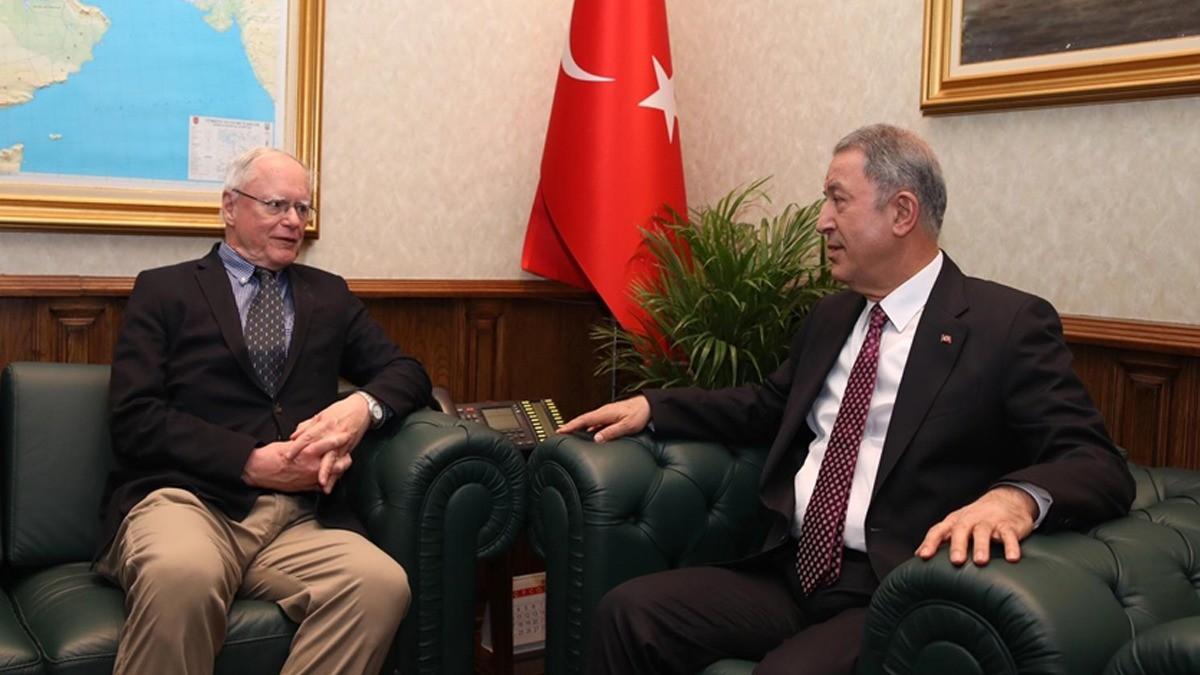
Turkish Armed Forces have carried out the Euphrates Shield, Olive Branch counter-terrorism operations in Syria, and then launched the Spring Shield operation. During the first two operations, Turkey struggled against the US and Western bloc. Ankara was conducting anti-terrorist action against PKK/YPG-PYD terrorist group backed by its NATO allies. However, the Operation Spring Shield is fighting against Russia- and Iran-backed Assad forces in Idlib. Turkey aims to establish a corridor with an initial depth of 32km in Syria, enabling the settlement of up to 2 million Syrians there. Thus, Ankara is exhibiting its goodwill to Syria. Turkey is probably the only country that cares about the territory of the Arab Republic and does much work in this direction.
It begs the question: who is Syria's true friend? The puppet regime and its supporters? Or those who arm and instruct the terrorist PKK/YPG-PYD groups? Or that one which supports Syria's territorial integrity, providing asylum for its 3.6 million civilians and striving to achieve their return to the homeland? The durability of the ceasefire will, albeit briefly, clarify these questions. For now, the sides are following the truce.
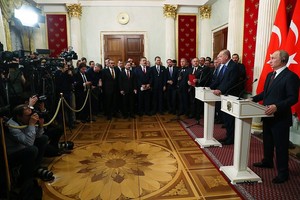
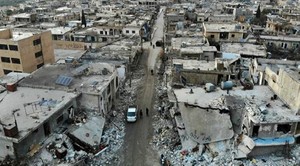
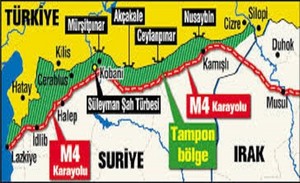
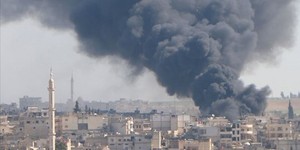
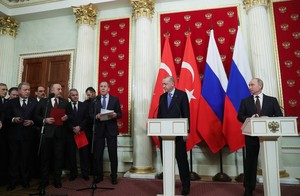
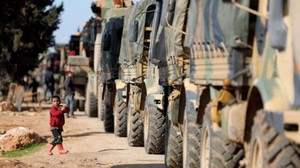
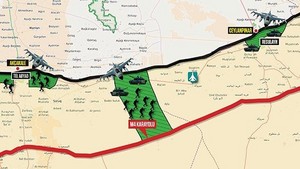
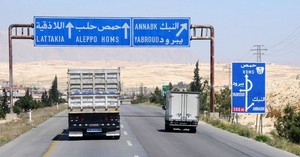
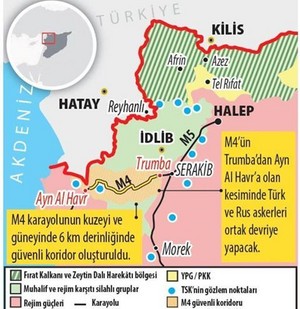
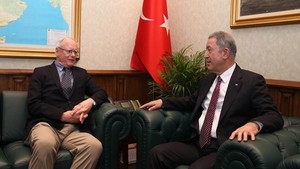
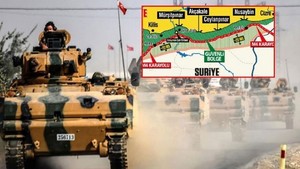
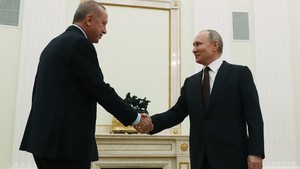


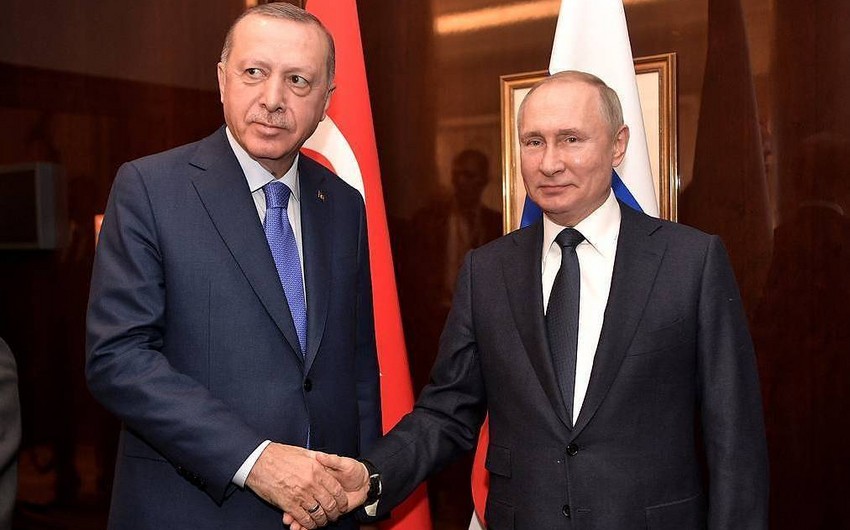 https://static.report.az/photo/a235d2df-05f4-4cde-8ef7-cb4bd9e9c463.jpg
https://static.report.az/photo/a235d2df-05f4-4cde-8ef7-cb4bd9e9c463.jpg

